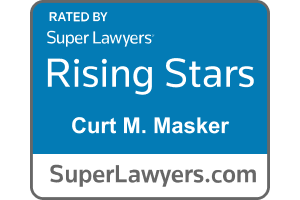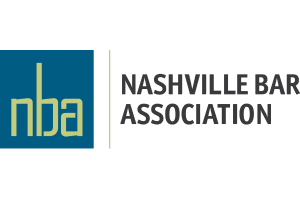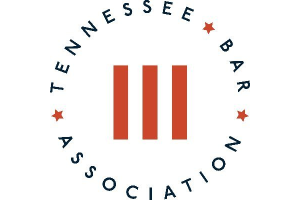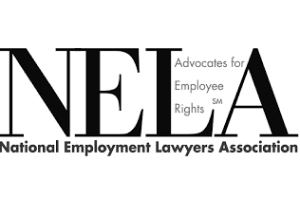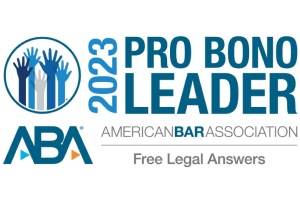for Workers
Workplace Retaliation
Nashville Retaliation Lawyers
Sticking up for yourself takes courage. Retaliation is a primary concern for employees who want to do the right thing and speak out against an employer’s legal violations. Employers who retaliate against employees for raising workplace concerns seek to instill fear in their workforces so they can continue their unlawful practices. Do not allow this perceived threat to force you to accept a substandard work environment.
Our skilled Nashville workplace retaliation attorneys have successfully handled numerous retaliation claims for workers throughout Tennessee. Contact us online or at the number above for a free online case review.
Unlawful workplace retaliation is the most common type of employment law claim and it occurs when an employer fires or otherwise adversely treats an employee for reporting potentially unlawful activities.
Employees in Tennessee are protected by federal and state laws that prohibit employers from retaliating against employees who take a stand against unlawful activities in the workplace.
Top 5 Examples of Unlawful Workplace Retaliation
Common examples of unlawful workplace retaliation include an employer firing an employee after the employee:
- Complained about workplace discrimination
- Opposed harassment for yourself and/or coworkers
- Filed a charge with the EEOC
- Participated as a witness in a workplace investigation
- Spoke out about or refused to participate in illegal workplace activities
Protected Activity in the Employment Law
It is against the law for an employer to retaliate against an employee because he or she has opposed any practice made unlawful by federal or state law or because he or she has engaged in “protected activity.”
The most common forms of “protected activity” include:
- Filing a Complaint Regarding Workplace Discrimination or Harassment
- Opposing Wage and Hour Violations
- Blowing the Whistle on Illegal Activities
- Requesting or taking FMLA Medical Leave
- Requesting or taking Military-related Leave
- Opposing or Refusing to Participate in Illegal Activities
Unlawful Adverse Employment Actions
Employment laws that protect against workplace retaliation generally require the employee to show a legal harm in the form of an adverse employment action. These actions are employment decisions made by your employer that negatively impact you as an employee.
Our team of experienced Nashville retaliation lawyers can assist you in determining whether or not your particular circumstances may constitute a viable legal claim under the law. Level the playing field by learning your legal rights.
The following are examples of adverse employment actions:
- termination
- demotion
- pay cut
- denied a pay raise
- passed over for promotion
There are many other types of adverse employment actions under the law that may impact your employment, but the general idea is that the negative employment action taken against you must be more than a trivial harm.
Proving a Workplace Retaliation Claim
Proving a retaliation claim can be difficult and you need an experienced Nashville-based retaliation lawyer fighting on your behalf. Retaliation claims are rarely proven with direct evidence. An example of direct evidence would be if your boss said, “I’m firing you because you have been complaining about unpaid overtime!” Not many supervisors are dumb enough to say such a thing. Instead, retaliation is usually proven with circumstantial evidence.
To raise a presumption of retaliation using circumstantial evidence, an employee must show:
- (1) he or she engaged in a protected activity
- (2) the employer subjected him or her to an adverse employment action [examples above]; and
- (3) there is evidence showing a link between the protected activity and the adverse action.
In defending retaliation claims, employers often claim that the employee did not engage in protected activity and/or that the decision maker who terminated the employee had no knowledge of the protected activity. However, employer knowledge can be imputed or inferred based on the circumstances.
To show a legal connection between your protected activity and the adverse action, you can point to the timing of the events. If the adverse action occurred shortly after you engaged in protected activity, this suggests your employer considered such activity in its decision-making process. Also, you can point to solid performance evaluations in the months or years leading up to your protected activity. Further, it can be inferred that key personnel who were consulted in past termination decisions were also consulted for your own termination; this presents circumstantial evidence that the decision maker did in fact have knowledge of your protected activity. Conflicting stories often create credibility determinations for a jury to decide. Retaliation claims can be difficult and you need an experienced retaliation lawyer serving Nashville in your corner.
How Much Money is a Tennessee Retaliation Case Worth?
The value of a workplace retaliation case varies significantly based on many factors, including what employment laws apply, how much money you have lost in earnings and benefits, the type and quality of evidence, and if the company has retaliated against workers in the past.
That said, there are four general categories of damages available in retaliation cases:
- Lost wages and benefits (past and future)
- Compensatory (emotional pain and suffering, and inconvenience)
- Punitive (to punish and deter the employer for its retaliatory actions)
- Attorney’s fees and expenses (if you go to trial and win)
Depending on the type of legal claims, compensatory and/or punitive damages may be capped under federal and Tennessee employment laws based on the size of the employer’s workforce as follows:
- 8-14 employees ($25,000)
- 15-100 employees ($50,000)
- 101-200 employees ($100,000)
- 201-500 employees ($200,000)
- 501 or more employees ($300,000)
These limits do not apply to backpay, interest on backpay, front pay, equitable relief, or damages for claims filed under 42 U.S.C. § 1981.
Employer Duty To Notify Employees of Their Workplace Rights
Employers who are covered by federal employment laws are required to post notice of anti-discrimination laws in the form of the “EEO is the Law” poster. This mandatory poster is prepared by the Equal Employment Opportunity Commission and must be placed in a conspicuous location where notices are customarily posted.
Fight Back Against Unlawful Workplace Retaliation
Fully understanding your legal rights is essential to knowing the best path forward. If you were fired after complaining about potentially unlawful employment practices, then you need an experienced attorney in your corner.
Contact our retaliation lawyers in Nashville online or at the number above.


